I have regex like this:
(?i)^(?!.*\bWITH\b).*\(\s*.*\s*\b(INDEX|FASTFIRSTROW|HOLDLOCK|SERIALIZABLE|REPEATABLEREAD|READCOMMITTED|READUNCOMMITTED|ROWLOCK|PAGLOCK|TABLOCK|TABLOCKX|NOLOCK|UPDLOCK|XLOCK|READPAST)\b\s*.*\s*\)
It return true in http://regexstorm.net.
But when i run in C#, it always return false.
String input to text:
INNER JOIN t_hat_meisaimidasi AS MM (READCOMMITTED, NOLOCK) WHERE ( AND hat_kanri_no = ?
Can someone explain me why?
